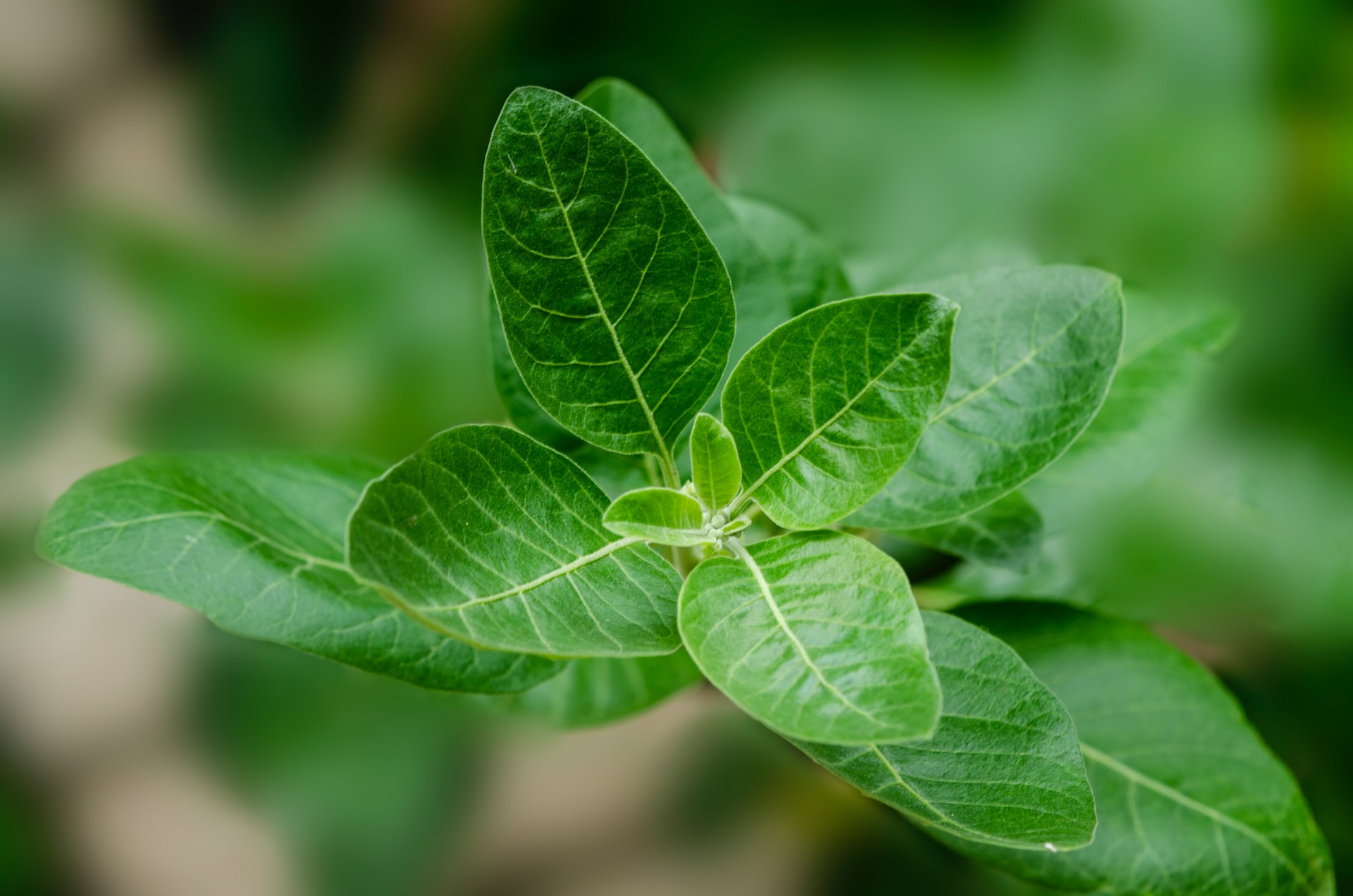Ashwagandha – What Is It?
You may have heard this name recently, as it’s been growing in popularity. Sometimes referred to as Indian ginseng, Ashwagandha is a plant utilized in Ayurveda, traditional Indian medicine. Although the entire plant has many uses, it’s root extract is the most widely used supplement.
As an adaptogen, this plant improves the body’s capacity to withstand stress.
What Are The Benefits?
The most well-known benefits of ashwagandha are its anxiolytic (anti-anxiety) and stress-relieving properties. A number of studies have shown that it also appears to lower cortisol levels. There’s a growing body of research showing the effectiveness of ashwagandha for increasing total sleep time and sleep quality in both those with and without insomnia.
Ashwagandha is becoming more popular among athletes as well. Preliminary research indicates that ashwagandha enhances upper and lower body strength, lower body power, and recuperation in addition to increasing VO2max. In men with fertility problems, ashwagandha may also enhance certain sperm quality indicators.
How About Side Effects?
Although ashwagandha seems safe, more extensive long-term study especially intended to assess its safety is required. Some people may experience minor lethargy and sedation from ashwagandha.
Ok, But How Does It Work?
There are multiple bioactive substances present in ashwagandha. These prove powerful anti-inflammatory and antioxidant qualities, which account for the majority of its advantages.
The plant appears to affect the hypothalamic-pituitary-adrenal axis, which is important in the stress response, as shown by its capacity to lower cortisol levels. This effect is part of its capacity to lessen stress and anxiety.
It also appears to change the signaling of a number of neurotransmitters that are malfunctioning in anxiety disorders. Its advantages for sleep are especially related to its capacity to boost GABAA receptor signaling.
Some research suggests ashwagandha may enhance endurance performance by raising levels of hemoglobin (the protein in red blood cells responsible for carrying oxygen to the rest of the body).
The antioxidative properties of ashwagandha in addition to its capacity to raise testosterone levels are responsible for its potential to enhance reproductive health. Although this may also increase testosterone levels in healthy men, this impact is more pronounced in men who are infertile and have low testosterone levels.
What Is A Normal Amount?
Ashwagandha studies have made use of daily doses of 250–600 mg of a root extract. The most typical dosage is 600 mg/day into two doses, one with breakfast in the morning and the other in the evening.
In general, it’s best to start with a lower dosage and slowly work up to higher amounts as needed.
In Short…
Due to its numerous pharmacological actions such as anti-stress, neuroprotective, antitumor, anti-arthritic, analgesic, and anti-inflammatory, the available scientific data supports the conclusion that Ashwagandha is a potent regenerative herb.
Keep in mind that although it’s usage dates back centuries, modern large-scale clinical trials demonstrating the herb’s clinical efficacy, particularly in stress-related diseases, neuronal disorders, and cancers, is still ongoing.
If this medicine plant seems like a good fit for your diet, please consult a healthcare professional, especially if pregnant.
May Your Food Be Your Medicine,
Coach Leon




